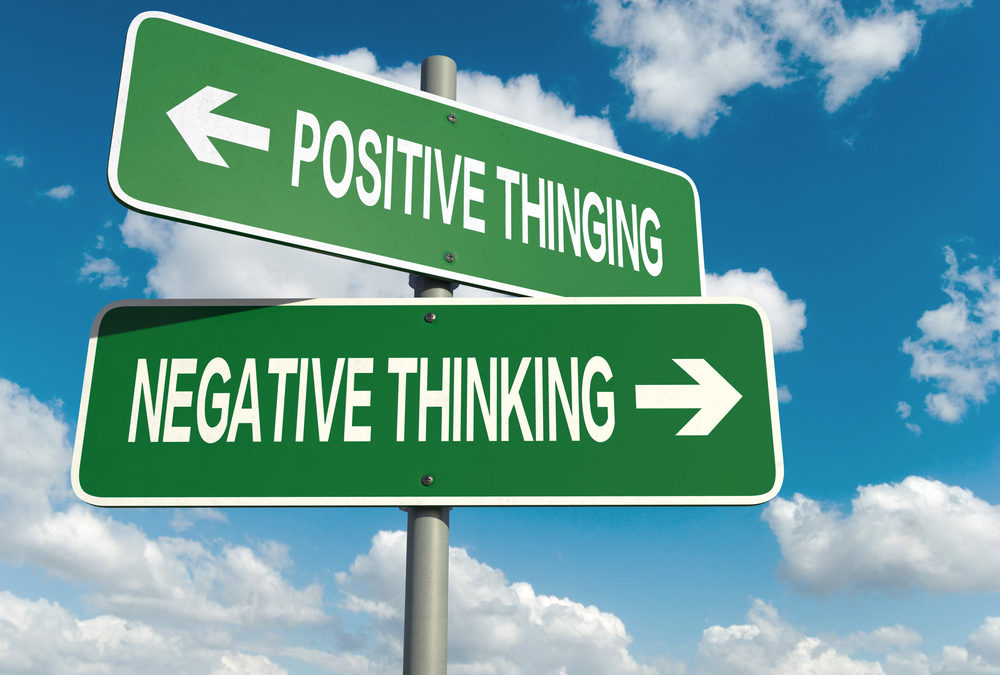
by Anastasia Chrysostom | Jan 27, 2020 | Personal Growth
by Gorgeous West, MA, APC, NCC
You remember that old school Mase song that went “Breathe…Stretch…Shake….LET IT GO” (insert Diddy Bop here)? If so good we’re on the same page…if not then keep reading!
Wouldn’t it be nice if we were able to let go of our pains, worries, stressors that easy by doing those three simple things?
When was the last time you gave yourself permission to let some sh*t go? Take a second and think about….if it was recently then KUDOS to you but if you’re still thinking of a time then this blog post is for you! Are you tired of feeling weighed down emotionally, mentally, and spiritually?

Now is your time….here are 4 Reasons Why You Should Let That Sh*t Go:
- We tend to carry a lot of sh*t (negative thinking patterns, fears, stressors, and etc.) that don’t belong to us. Generational traumas get passed down like family recipes and automatically become “the right way” but that does not mean that it’s “your way”. It’s time for you to change the recipes, let the shit go that is not purposeful to you and do what works for YOU. Change the recipe narrative by breaking through the passed down cycle.
- Holding on to things mentally, spiritually, emotionally, or physically can stunt your growth and block your wins. In order for one to grow one must be open to receive. You can’t be living your best life in 2019 holding on to things from the 99 and the 2000s (see what I did there…lol). It’s important that you’re able to invite new feelings, opportunities, and wins in!
- You deserve to be happy & free. Say it out loud “I DESERVE TO BE HAPPY & FREE”.By letting sh*t go you can focus on YOU…(Periodt). What does this look like…let’s see: increase self-awareness through self-exploration, actively practicing self-care, connecting with others,and building new and meaningful relationships.
- You’re only 1 person and you can’t do everything. No matter how well of planner or time management connoisseur you think you are the reality is this you can’t. It’s important to be able to let some shit go and allow others that are qualified & available to assist you(keywords: #qualified & #available). This can decrease your feelings of stress & anxiety and allow you to focus on the priorities aka (the major keys).
Gorgeous West, MA, APC, NCC If you feel as if your cup is empty and you have nothing left to pour into others then it is time for you to pour into YOUrself and refill emotionally, mentally, spiritually, and physically. I provide a warm direct approach in helping you be your true authentic self. I welcome you to a safe space where you can take off your cape to focus on yourself.
Learn more about Gorgeous and how she can help you, Here
Follow us on Facebook and Instagram to see more advice from our therapists!
Facebook Instagram
After the first reception I felt a little nauseous, and there was a headache the next morning. With Kamagra, my erection is as good as in 20 years.

by Anastasia Chrysostom | Dec 1, 2019 | Personal Growth
I was recently working with a client who has been struggling with depression. We were discussing how her thoughts and emotions lead to her behavior. If we take a moment to truly reflect upon the relationship of these three, the constant interaction of play becomes obvious.
Generally, when we have a negative thought it can lead to negative emotions which in turn feed into negative behaviors. These cycles become constant and can eventually become ingrained such that we are stuck.
The negative wash, rinse, repeat is automatic.
So the idea is we need to jump into the cycle and change one of the variables in the hopes that the others will respond in kind….positive thoughts would eventually lead to positive emotions and then behaviors therein changing the cycle. Some people may find that starting at another spot in the cycle is easier.
Whether you begin with the thought, emotion or behavior, they feed one another.
In the case of this client she stated, “I tried to change my thoughts…I was thinking that I am defeated and bad things keep happening…so I thought ‘OK, but things could be worse!’”. Indeed they could. But isn’t that always a true statement? Consider that…..of course they could. In truth, we can probably come up with a worse case scenario for pretty much anything if we are honest and creative. The problem with her use of the strategy was flawed. This became obvious as I took her further down the thought process. “And what thoughts do you have after the realization that things could in fact be worse?” The client laughed and said, “Well, then I just feel like crap because I’m feeling badly when other people have it worse!”
Exactly. In this case it becomes clear that her “positive thought” is cloaked in self-flagellation. “I am a loser who can’t get it together!”. What a loving thought.
The truth is that negative thoughts are voices of the past.
They have become so loud and automatic they pop into our mind without warning. They are learned. Our brains have become so used to them they are now defaults. Not only that but crafty! They can easily spin any positive into a negative if we aren’t closely monitoring them.
So then what are we to do? The first is to recognize that if you are truly a master at negative self-thoughts you’re pretty low on the scale of being kind to yourself. Perhaps, on a scale of 0-10 your self-kindness is hovering at a 0. Given this I submit that going from “I suck” to “I am awesome” (level 10) is a tough bar and pretty cruel. It really isn’t realistic. I say lower the bar. That’s ok. Truly.
When you recognize there is a problem that is a step. Forward.
 The next reasonable and realistic step would be to just become aware of your automatic thoughts. Consider it a study. Just keep track on paper how many times your mind pops onto something negative and note it. Become curious. At the end of the day just observe these thoughts and how many there are.
The next reasonable and realistic step would be to just become aware of your automatic thoughts. Consider it a study. Just keep track on paper how many times your mind pops onto something negative and note it. Become curious. At the end of the day just observe these thoughts and how many there are.
Decide on one kinder, level 3 thought that you can then use EVERY time you have a negative thought. How about “OK, I don’t totally suck, I actually am okay and am going to change” or “I’m choosing to not think that but I’m going to give my self a break on that thought”. What ever your thought of choice, make it kinder and use it every time a negative thought comes up.
Begin to keep track of things that you have done each day that didn’t suck! You may be surprised at how many there are. Be aware and think about it. If you made some one laugh, or happy, if you exercised, or ate better, didn’t eat five cookies but three.
The point is to become very self-aware of your thoughts and be kind when you chose your positive thoughts.
Make sure they are not really just hidden sledge hammers to your head. Those darn things are sneaky and can come in from a side door. Call them out and don’t try for a 10, just be curious about a 3.
Kate Knott, MS, APC, NCC We can work together to identify what you are struggling with and how to effect change in your life. I believe this because I have seen it happen. I went back to school later in life because I knew that I was passionate about helping others and I wanted to do so. I respect you and your experiences. I respect your story and your right to feel better! I believe in my knowledge and training within the profession of counseling and know it can be helpful.
Follow us on Facebook, Instagram and Pinterest to see more advice from our therapists!
Facebook InstagramPinterest
I became easily agitated, but had no other side effects. I lost 14kg in a month and kept it off because my stomach had shrunk so much.

by Anastasia Chrysostom | Sep 1, 2019 | Personal Growth
by Kathryn Vaughn, LCSW
They can make us feel so uncomfortable and sometimes even out of control!
Sometimes emotions lead us to behave in ways we later regret, which can make us feel even more unpleasant feelings, such as shame and guilt. But what happens when we try to push those pesky emotions away or pretend that we don’t have them? Sooner or later they catch up with us in ways that can be far more detrimental.
Blocking our emotions can cause mood swings, depression, anxiety, angry outburst, and feelings of numbness-all which affect or important relationships and how we interact with others. When we avoid our feelings, we tune out to what we need, and we fail to experience life fully and authentically. When we block one emotion, we damper all our emotions.
Suppressing emotions has been linked to heart disease, gastro-intestinal problems, headaches, muscle pain, insomnia and autoimmune disorders-our minds are not separate from our bodies.
So, we do not want to get rid of our emotions, we want to use strategies to help us respond to them in beneficial ways.

So what are emotions and why do we have them?
Since ancient times this question has been debated and studied by Philosophers, Psychologists, and Scientist, and continues to be researched and disputed today. Different researchers classify emotions in various ways, however, for brevity lets clarify some generally accepted meaning for emotions that can help us to better understand them.
Primary Emotions
In the 1970’s psychologist Paul Ekman identified six primary emotions: anger, disgust, fear, happiness, sadness, and surprise. These emotions can be identified by facial expressions. Today we may see happiness listed as “joy” or “enjoyment”. These basic emotions are innate physiological response to what is happening around us in our environment or organic processes occurring within us.
These core emotions are instinctual, universal, strong, and occur pre-consciously. They prompt us to take action and help us to survive. They also help us connect with others- our faces have around 90 muscles and at least 45 of which are used to signal emotion to other people. Primary emotions are your first initial reaction to something that has happened, and they are transitory- they come and then they go.
Anger and Fear tell us there is a threat, potentially life or death, and we should protect or selves either by fighting or running away.
Disgust propels us to move away from something that is potentially toxic that could cause harm or death.
Sadness tells us we are missing something that is important to us.
Joy is triggered by pleasurable experiences and it encourages us to do more of what is beneficial for us that helps us thrive.
Surprise prompts us to pay attention and helps us remember something that could be important.
Later Dr. Ekman added an additional eleven universal emotions which are which aren’t primary emotions they are: amusement, contempt, contentment, embarrassment, excitement, guilt, pride, relief, satisfaction, sensory pleasure, and shame. And In 2017 researches at UC Berkley identified 27 distinct categories of emotions (these are with in American culture).
 Secondary Emotions
Secondary Emotions
Secondary emotions are feelings we have about our primary emotions.
Secondary emotions are more complex and are caused by our unconscious or conscious thoughts about a primary emotion. Secondary emotions may be simple such as feeling angry when someone close to us hurts our feelings (when the primary emotion is really sadness or fear), or they are a mix of emotions such as feeling afraid and guilty about being angry with a friend. As you can see the primary emotions can be felt as secondary emotions, which can make them feel confusing. Also secondary emotions can feel familiar from past experiences and they generally linger over time.
Some secondary emotions such as shame, anxiety, and guilt are used to help protect us when our core emotions could cause a conflict with important people in our lives or when fully experiencing our core emotions would cause emotional overwhelm.
These “inhibitory emotions” can feel safer to feel over primary emotions due to what we have learned through our family norms or what our culture dictates is socially acceptable. For example, when we are told being vulnerable is undesirable and then we experience a core emotion of fear, we unconsciously push it away and feel shame instead. This is not to say shame, guilt, and anxiety are not beneficial emotions at times, they help motivate to be better human beings however if we learn to use these to block our core emotions and authentic self they cause psychological suffering.
Stay tuned for part 2 which will discuss strategies to help identify, explore, accept, and express or emotions-which is different from reacting and sharing our emotions with others.
“Feelings or Emotions are the universal language and are to be honored. They are the authentic expression of who you are in your deepest place.”
Judith Wright
Kathryn Vaughn, LCSW I have a passion for helping people connect with their innate inner strength and striving for wellness and look forward to the opportunity to explore your specific needs and challenges, as well as working together in attaining your specific goals.
Learn more about Kathryn and how she can help you, Here
Follow us on Facebook, Instagram and Pinterest to see more advice from our therapists!
Facebook Instagram Pinterest
_______________________
References:
https://time.com/5163576/ignoring-your-emotions-bad-for-your-health/
https://www.paulekman.com/
http://atlasofemotions.org/#introduction/
https://psychcentral.com/lib/why-feeling-sad-is-actually-good/
https://www.forbes.com/sites/brucelee/2017/09/09/here-are-the-27-different-human-emotions-according-to-a-study/#4934ba6a1335
https://www.pnas.org/content/114/38/E7900
Hendel, H.J. (2018). It’s Not Always Depression: Working The Change Triangle to Listen to the Body, Discover Core Emotions, and Connect to Your Authentic Self. New York: Spiegel & Grau

by Anastasia Chrysostom | Aug 5, 2019 | Personal Growth
Have you ever found yourself doing something that you felt was totally out of character?
Perhaps you got into an argument and suddenly physically attacked someone, much to your surprise. Or you felt a surge of an intense emotion such as jealousy or rage that seemed alien, like it wasn’t coming from you. It was as if someone or something else had taken over your body and mind and you were no longer in control.
Hello, meet your shadow.
Everybody has a shadow. While the shadow part of our personality can do much damage, this doesn’t mean it is evil. In fact, Psychiatrist Carl Jung stated that it is healthy to have a good balance between our shadow (the part of our personality that we repress) and our persona (the mask we wear in the world to fit into society’s norms). Our personality is healthy when there is a balance of opposing tendencies: extraversion balanced by some introversion; kindness and self-sacrifice balanced by some selfishness and aggression. The problem comes when we deny or are unaware of the contents of our shadow. If not made conscious, stuff from our shadow can develop into a complex, which hijacks us and our relationships, in spite of our best intentions.

So how can we know more about our shadow and its contents? Because it is unconscious, we are likely unaware of its presence. Here are some suggestions:
- Talk to someone close to you that you trust: your best friend, spouse/partner, sibling, close family member; someone with integrity and who knows you well. Chances are, they’ve seen you being seized by the complexes in your shadow. And if they are comfortable being honest with you, they could give you insight into this part of your personality.
- Pay close attention to your dreams: write them down or draw images that appear in them, maybe even join a dream group. The characters, plots, and situations that show up in our dreams can give us clues about the contents of our shadow.
- If you feel ready to have an intimate relationship with your shadow, find out about Jungian analysts or certified dream therapists in your area. When we decide to explore our unconscious, it is a good idea to have a guide and witness to help us navigate through the dark, deep reaches of our psyche. If you are a trauma survivor, however, it is recommended that you see a trauma therapist and work on the trauma before starting on shadow or dream work.
Embrace your whole personality, the good, the bad, the ugly. It all makes up who you are. Work on parts you want to change while allowing all parts to balance one another.
Nyambura Kihato, M.Ed, MA, LPC, CCTP I earned my Bachelor of Education in German Language and Literature from Kenyatta University in Kenya. I studied German further at the Goethe-Institut Nairobi, and in Luebeck, Germany. I went to graduate school at the University of Hull, UK, where I obtained a Master of Education in Counseling and Child Development and Learning. I taught for several years in Kenya before coming to the United States to study at the California School of Professional Psychology, San Diego, graduating with an M.A. in Counseling Psychology. I am a Licensed Professional Counselor (LPC) in the state of Georgia, trained in EMDR (Eye Movement Desensitization and Reprocessing), and am a Certified Clinical Trauma Professional (CCTP). I currently serve on the board of the Jung Society of Atlanta and am training to become a Jungian analyst.
Follow us on Facebook, Instagram and Pinterest to see more advice from our therapists!
Facebook InstagramPinterest






 The next reasonable and realistic step would be to just become aware of your automatic thoughts. Consider it a study. Just keep track on paper how many times your mind pops onto something negative and note it. Become curious. At the end of the day just observe these thoughts and how many there are.
The next reasonable and realistic step would be to just become aware of your automatic thoughts. Consider it a study. Just keep track on paper how many times your mind pops onto something negative and note it. Become curious. At the end of the day just observe these thoughts and how many there are.


 Secondary Emotions
Secondary Emotions



Recent Comments